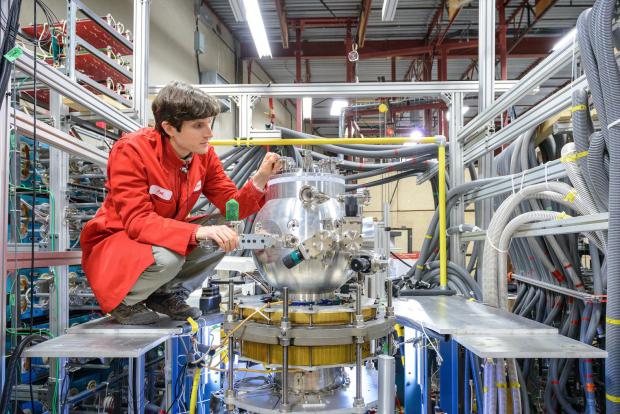
Breaking News
DRINK 1 CUP Before Bed for a Smaller Waist
 Nano-magnets may defeat bone cancer and help you heal
Nano-magnets may defeat bone cancer and help you heal
 Dan Bongino Officially Leaves FBI After One-Year Tenure, Says Time at the Bureau Was...
Dan Bongino Officially Leaves FBI After One-Year Tenure, Says Time at the Bureau Was...
 WATCH: Maduro Speaks as He's Perp Walked Through DEA Headquarters in New York
WATCH: Maduro Speaks as He's Perp Walked Through DEA Headquarters in New York
Top Tech News
 Laser weapons go mobile on US Army small vehicles
Laser weapons go mobile on US Army small vehicles
 EngineAI T800: Born to Disrupt! #EngineAI #robotics #newtechnology #newproduct
EngineAI T800: Born to Disrupt! #EngineAI #robotics #newtechnology #newproduct
 This Silicon Anode Breakthrough Could Mark A Turning Point For EV Batteries [Update]
This Silicon Anode Breakthrough Could Mark A Turning Point For EV Batteries [Update]
 Travel gadget promises to dry and iron your clothes – totally hands-free
Travel gadget promises to dry and iron your clothes – totally hands-free
 Perfect Aircrete, Kitchen Ingredients.
Perfect Aircrete, Kitchen Ingredients.
 Futuristic pixel-raising display lets you feel what's onscreen
Futuristic pixel-raising display lets you feel what's onscreen
 Cutting-Edge Facility Generates Pure Water and Hydrogen Fuel from Seawater for Mere Pennies
Cutting-Edge Facility Generates Pure Water and Hydrogen Fuel from Seawater for Mere Pennies
 This tiny dev board is packed with features for ambitious makers
This tiny dev board is packed with features for ambitious makers
 Scientists Discover Gel to Regrow Tooth Enamel
Scientists Discover Gel to Regrow Tooth Enamel
 Vitamin C and Dandelion Root Killing Cancer Cells -- as Former CDC Director Calls for COVID-19...
Vitamin C and Dandelion Root Killing Cancer Cells -- as Former CDC Director Calls for COVID-19...
This Vancouver Startup Is Chasing the Dream of Clean, Limitless Energy Forever

In the suburbs of Vancouver, a team is working on what they think is humanity's best chance at clean, unlimited power, something we desperately need. A startup called General Fusion is building a nuclear fusion reactor and, if they succeed, it could mean the end of the fossil fuel era. Instead, we'd get our power from the same process that occurs in stars—at least, that's the dream.
Because of climate change, nuclear power—which produces no greenhouse gases—is looking like more attractive. But the big problem is what to do with the radioactive waste left behind. Nuclear fusion promises to solve the problems of traditional fission power. Its fuel is abundant (seawater!), and it has a harmless helium byproduct. But until recently, the challenges of fusion seemed insurmountable. Now, big name investors like Jeff Bezos are lending a hand to General Fusion, which is attempting a whole new approach.
Unlike the nuclear fission that powers conventional reactors today, in which atoms are split apart, fusion power is generated when you smoosh two smaller atoms into a larger one inside a containment device. The math behind fusion says this reaction has to result in the loss of a bit of mass and, well, due to that little equation E=mc2, that mass turns into a lot of energy. Like, a ton.



